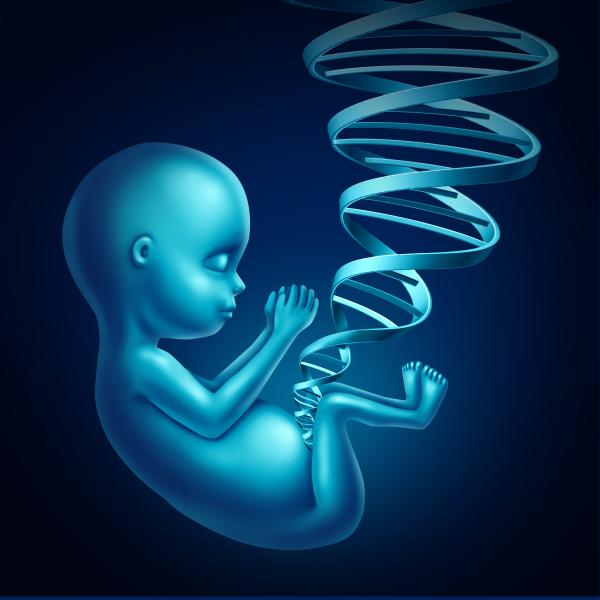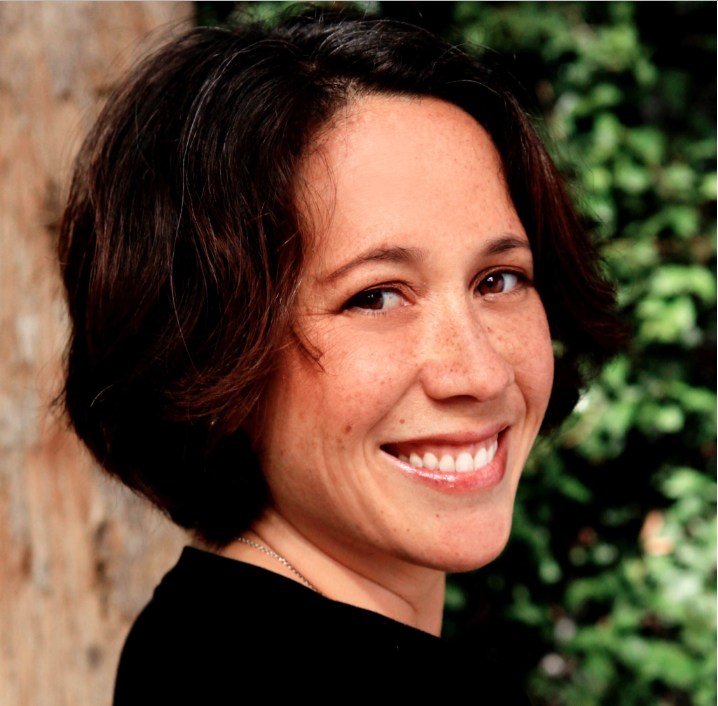
My pregnant mom - while caring for her ill father - got a call her grandfather died. She started to shake uncontrollably as her water broke. Shortly thereafter, out I came - nearly a month before I was due.
The upsetting news induced a physiologic reaction. Current science supports this conclusion as the paradigm is ever-shifting to recognize the strong link between environment in prenatal life and health outcomes that span the spectrum into adulthood.
The film IN UTERO, directed by Kathleen Gyllenhaal, aptly articulates my battle cry after over a decade of pediatric practice. Though intended to speak to the perils of chronic toxic stress’ effect on the fetus and pregnant mother, it manages to start an overdue conversation about the primary causes of addiction, adult dysfunction, and flawed narratives that beget a host of physical and mental health disorders and behaviors.
The events precipitating my birth likely resulted from an acute surge in stress hormones. Rapidly rising adrenaline and cortisol levels, for example, impact multiple organ systems as your body’s built-in mechanism to escape danger is triggered.
Now, imagine if those hormones remained chronically elevated throughout an entire pregnancy. And, across many generations. In those that endured Nazi Germany and famine. Extreme poverty. Abandonment and abuse. Parental mental health problems.
Extensive research on early childhood adversity reveals an elevated risk of cardiovascular disease, asthma, cancer, and depression in adulthood. Though the impact can be great, it does seem that well-timed intervention and expanding efforts to improve society, policy, families and awareness can facilitate an improved future. (1)
Denial, however, can be impenetrable. Doing the work to fix from the inside out instead of the outside in is where true awakening is born. The process is riddled with ambiguity and often sacrifice, but the reward can last a lifetime and meaningfully ripple throughout the general population.
Unfortunately, we all find the pain of just dealing with it head on as more challenging than the certainty of status quo.
IN UTERO explores why we are who we are and how our environment plays so critical a role. Dr. Gabor Maté, physician and bestselling author, joins the varied experts that appear across multiple scientific and medical disciplines. He asserts: “Stress that affected one generation will be played out very exactly in the next generation to the degree that that generation has understood it or not understood it. Dealt with it or not dealt with it. So, fundamentally, so long as we are not conscious we are going to pass on our stress and our drama to our kids. People are conceiving, carrying and birthing children under increasingly stressed conditions. When we see dysfunction in people, we are actually seeing the imprint of that earlier experience.”
By referencing the burgeoning field of epigenetics, the film exposes the modernization or integration of the age old nature versus nurture discourse. It is the study of the effect of external or environmental forces ability to influence whether genes are turned on or off. Good and bad exposures can change genetic expression to adapt to the environment. As neuropsychiatrist and psychoanalyst Ursula Volz-Boers, MD advises, “intrauterine life is not a paradise as some people try to make us believe. We are the receiver of all the happiness and all of the anxieties and difficulties of our parents.”
Taken a step further, the power of this documentary lies in mirroring my collective experience in pediatrics whether it be in family dynamic or child development. Children absorb the stresses of their environment. This understanding is not about blaming or displacing personal responsibility. It is about championing facing the cause to empower a new narrative and healing. Ultimately, if a child carries these unresolved issues into adulthood, then the burden becomes theirs alone to bear—and, that of our society.
When I was in medical school, I completed a course in ethics. I was passionate about ethics and attended every lecture. Because it mattered to me. I value empathy and attempt to employ it in most settings. The harsh reality is those who had no interest in the class likely needed it the most. Those who lack insight can’t be compelled to unlock what blocks them from peace and leading a successful life.
Our culture encourages escapism and quick fixes. Numbing out albeit by hefty addictive substances like opiates or via soft addictions like nonstop over scheduling and endless social media or cell phone checking are means to fill an unidentified void.
Band-aiding ruptured arteries is the mainstay of most current policy and practice, unfortunately. Enhancing opioid prescription regulations treats a symptom, not the disease. Harm reduction has merit, but is enhanced by a multi-pronged approach. It is only when you face and understand the cause of your anxiety or suffering that healing and truly living begin. Then, the need for the anesthetic subsides.
Frederick Douglass famously declared “it is easier to build strong children than to repair broken men.” The responsibility of perpetuating a brighter tomorrow for all involves everyone pitching in - not just imminently expectant moms or families. We are all complicit in our reactions and behaviors. They are symbiotic. We all play a role.
IN UTERO is a beneficial watch for a deeper understanding of human behavior. It will affirm the message that healthy children ensure our survival and the betterment of our world. As Gyllenhaal maintains “the mother happens to be the vessel (that first environment) which nurtures the new child, but that doesn’t mean she is to blame for anything that may go wrong. In fact, it is everybody else who is at least equally, if not more to blame, for contributing to the stressful environment around her. It’s not about the mothers. It’s about all of us. We are all in this together. We are all to blame, and we are all blameless.”
Please click here for my two part interview with Kathleen Gyllenhaal, Director of IN UTERO. From wombs to Hollywood.

Kathleen Man Gyllenhaal was born and raised on Oahu, Hawaii and currently lives in Los Angeles. She is the writer/director of a diverse body of award-winning dramas and documentaries, including Beauty Mark, a social documentary exploring America’s obsession with body image, perfection and success, and Sita, a Girl from Jambu, an ethnographic drama about child sex trafficking in Nepal. Kathleen taught at the University of Colorado-Boulder, then Vassar College, where she obtained tenure. From there, she transitioned to Hollywood, co-producing the feature film Grassroots, starring Jason Biggs, Cedric the Entertainer and Lauren Ambrose, released by Samuel Goldwyn Films. Kathleen wrote and directed the award-winning Lychee Thieves, a multicultural tale set in Hawaii, which was an Academy Award qualifying live-action short. Her most recent film is the feature documentary In Utero, which explores the impact of the environment on pregnancy and the next generation.
Notes:
(1) Johnson S, Riley A, Granger D, Riis J. The Science of Early Life Toxic Stress for Pediatric Practice and Advocacy. PEDIATRICS. Volume 131. Number 2. February 2013.



